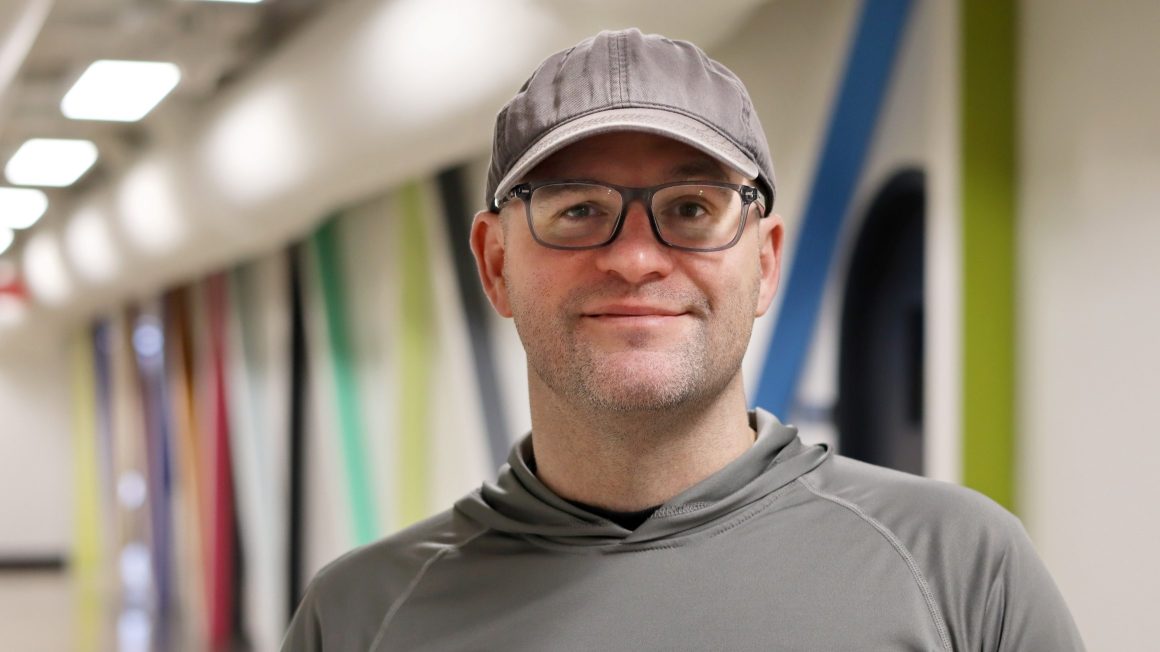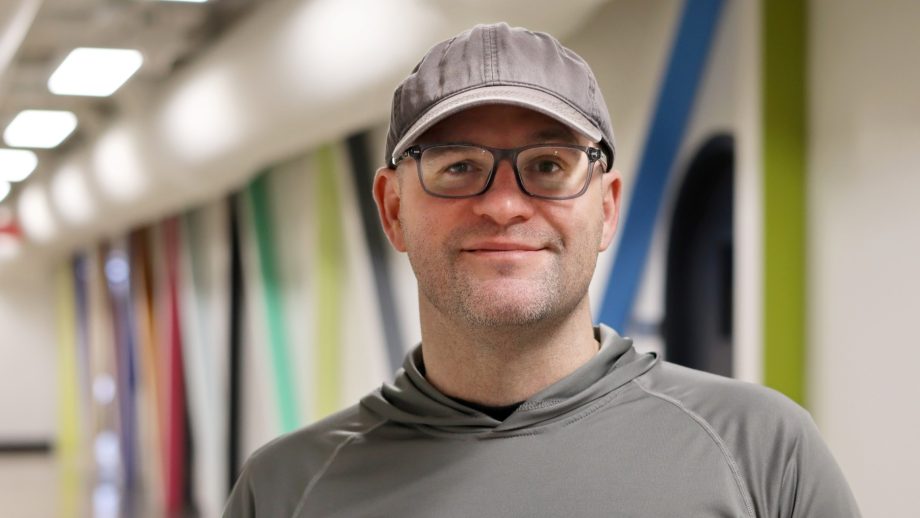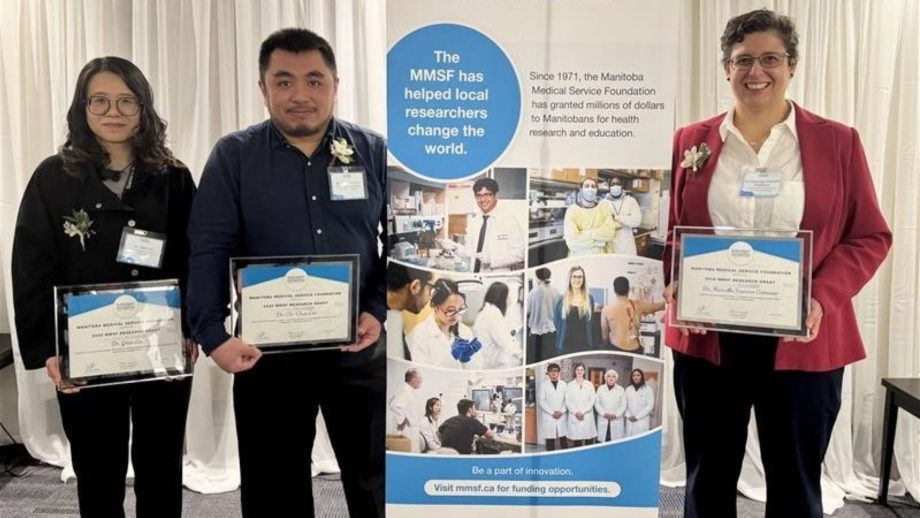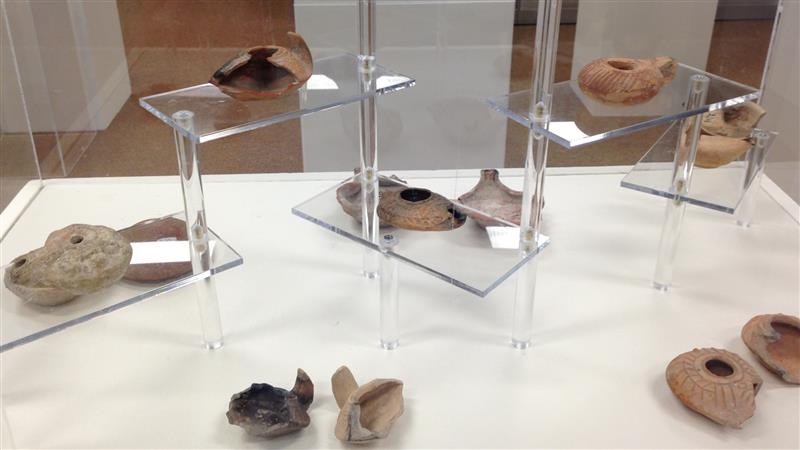Associate professor in UWinnipeg’s Department of Criminal Justice, Kevin Walby, is being recognized for nearly 20 years of his work in solidarity with criminalized people.
Along with his co-recipient from the University of Ottawa, Justin Piché, Dr. Walby has recently been acknowledged with a John Keith Irwin Distinguished Scholar Award from the American Society of Criminology (ASC). This award recognizes sustained outstanding professional contributions by individuals to the study of Convict Criminology.
It’s just one way for people who face the harms of the criminal justice system to have a voice.
Dr. Kevin Walby
“John Irwin is actually one of the first people I started reading when I got interested in criminology and criminal justice,” Dr. Walby recalled. “It’s nice to win the John Irwin Award because it kind of is full circle.”
Convict criminology supports the endeavor of criminalized people to tell their stories, to provide their accounts, and to turn that into scholarly work. People who are in the Division of Convict Criminology (DCC) have either experienced criminalization or work very closely in solidarity to promote the voices of those who’ve been through the criminal justice system.
“Someone who’s lived the entire experience of criminalization – from being surveilled, arrested, booked, going to court, spending years in jail, spending years in prison, being on probation, being on parole – they understand the whole system better than anyone,” said Dr. Walby. “That’s why we turn to the voices of criminalized people for those insights. How could academic inquiry into the topic happen otherwise?”
Journal of Prisoners on Prisons
For 15 years, Dr. Walby has worked to help publish the Journal of Prisoners on Prisons (JPP), which is the only peer-reviewed journal in the world featuring the writings of criminalized people.
“If you pick up any criminology journal, more than likely you’re going to see criminalized people described as dangerous, animals, or deviant,” Dr. Walby explained. “But, working with people in prisons and jails for more than 20 years, I would say people are people whether they’re behind bars or not. They all have lives, interests, stories to tell, and insights into the world around them.”
Dr. Walby said for the first ten years of the life of the JPP, academics didn’t take the journal seriously. This, he said, reflected the broader attitude and misconceptions that most people have about people who have been in prisons.
Now, the journal is used as a teaching resource in university classes and is even cited in other journals.
“I think it’s just one way for people who face the harms of the criminal justice system to have a voice, and that’s what we do,” he said. “We provide a platform for them to share their voice, their inquiries, their investigations of the system.”
Walls to Bridges
The John Keith Irwin Distinguished Scholar Award also recognized the work Dr. Walby has done through the Walls to Bridges program at UWinnipeg. Walls to Bridges offers university courses inside prisons and jails, providing access to education where there often isn’t any.
For the last 5 years, Dr. Walby has helped run classes at Stony Mountain Institution. Students travel from the UWinnipeg campus to Stony to take classes alongside inmates.
“It’s a university course, it’s just a totally different approach to university education,” said Dr. Walby. “We platform the stories, the voices, and the embodied experiences of all the students in the class.”
Dr. Walby said he often gets asked what it’s like to teach in a prison, and people often wonder if it feels safe.
“After about 20 minutes you realize people inside are exactly the same as us,” he explained. “A lot of the students say things like, ‘I totally forgot I was in prison for the last three hours’. All that stuff just melts away when you’re interacting with people in the way that we do in Walls to Bridges.”
Dr. Walby hopes his work helps people understand that those who have been inside the criminal justice system have a lot to offer the world in terms of scholarship.
“Otherwise we would just be stuck with the status quo in academia,” he said. “which is just these concepts or theories that demonize, that pathologize all criminalized people as if they are not people. They’re equal members of society, and their voices and stories are crucial to hear if we really want to understand what’s happening in the criminal justice systems.”





